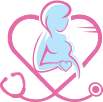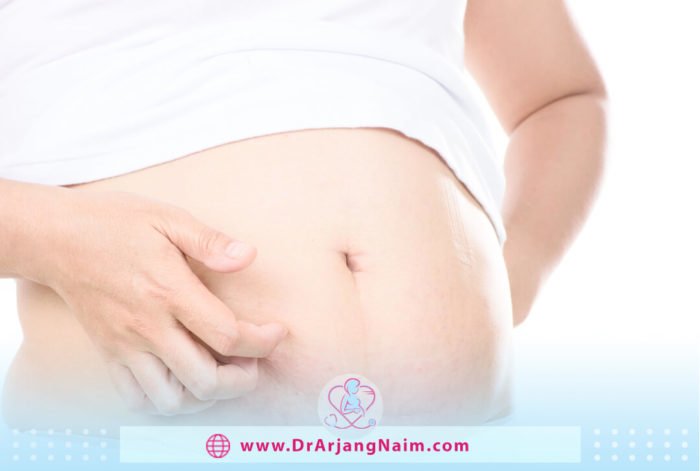Intrahepatic cholestasis of pregnancy, commonly known as cholestasis of pregnancy, is a liver disease that occurs in late pregnancy. This condition causes severe itching, but without a skin rash. Itching usually occurs on the hands and feet but can affect other parts of the body as well. Pregnancy cholestasis can transmit severe discomfort to the person, and there is a time to worry that the itching will spread to the baby so that the doctor will take the test from the baby in the first hours after birth.
Symptoms
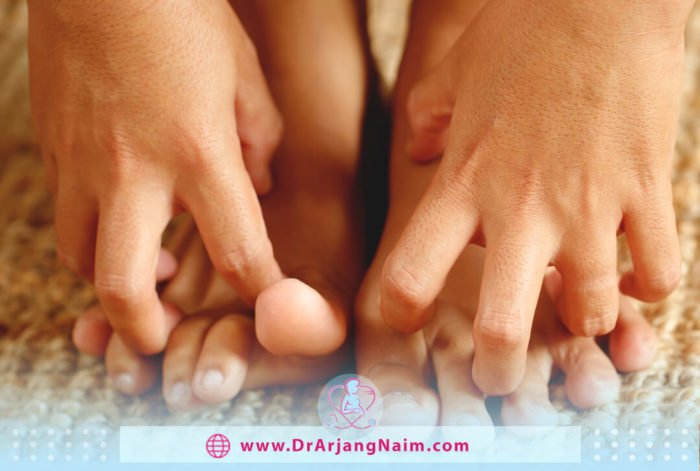
The main symptom of cholestasis of pregnancy is severe itching. It starts on the hands and feet and spreads to other parts of the body. The itching usually gets worse at night. Less common symptoms include:
- Nausea
- Dark urine
- Light-colored stool
- Fatigue
- Decreased appetite
- Pain in the upper right belly
- Jaundice (yellowing of the skin and eyes)
- Depression
Causes
The cause of cholestasis in pregnancy is unknown. Genes may play a role. Sometimes, this situation occurs in families. Pregnancy hormones may also be involved. As a pregnant mother gets closer to giving birth, pregnancy hormones increase, reducing the normal flow of bile (Digestive fluid made in the liver that helps the digestive system break down fats). Bile accumulates in the organs instead of leaving the liver, so bile salts enter the bloodstream, which can cause Feeling itchy.
Risk factors
Some of the factors that may increase the risk are:
- Personal or family history of cholestasis of pregnancy
- History of liver damage or disease
- Being pregnant with twins or more
- Undergone in vitro fertilization (IVF) treatments
- Chronic hepatitis C
How common is cholestasis of pregnancy?
It is a common liver disease during pregnancy. About 1 to 2 out of every 1000 pregnant women get it. Women with a Scandinavian, Indian, Pakistani, or Chilean background are more likely to be affected.
Complications
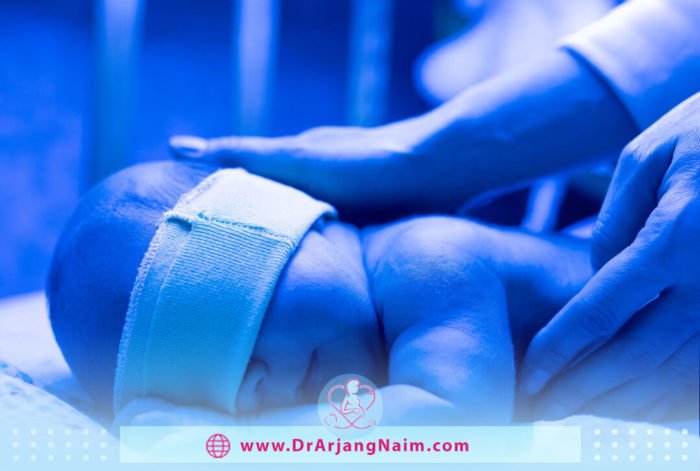
Cholestasis can affect both mother and baby. In mothers, cholestasis temporarily affects their body fat absorption. Low fat intake can lower their body vitamin K and reduce their blood clotting, but this complication is usually rare and can sometimes lead to liver problems in the future. Complications of cholestasis in pregnancy can also be severe in infants, including:
- Preterm birth
- Lung problems from breathing in meconium (A sticky, green substance that normally accumulates in the intestines of a growing baby but may be transferred to the amniotic fluid if the mother has cholestasis)
- Death of the baby late in pregnancy before delivery
Because complications can be very dangerous for the baby, the doctor may give birth prematurely.
Prevention
Pregnancy cholestasis cannot be prevented in general. Genetic testing may help children understand the possibility of transmitting the disorder.
Diagnosis
The doctor considers the patient’s signs and symptoms, such as urine and stool color and itchiness. It also asks the mother about personal and family medical records and performs a physical examination. Blood tests may show how well the mother’s liver is working and measure the bile level in the blood. Ultrasound scans can detect abnormalities in the mother’s liver but not in the fetus.
Treatment
If cholestasis is mild and occurs late in pregnancy, treatment may not be needed. The goal of treatment is usually to relieve symptoms, mostly itching, and prevent possible complications.
The following medications may be prescribed to help with the treatment:
- Ursodeoxycholic acid to relieve itching and increase bile flow
- Menthol creams to help soothe the itching, as there is no evidence that they cause harm during pregnancy
Soaking the affected areas of the skin in lukewarm water may provide temporary relief. Rubbing the affected areas with baking soda or apple cider vinegar may help, and apply coconut oil after bathing. Patients with cholestasis will have low levels of vitamin K, which increases the risk of bleeding, so the mother often needs vitamin K supplements before and after delivery.
According to the American Pregnancy Association, natural remedies for liver health, including dandelion root and milk thistle and calamine lotion, may help relieve itching, but any supplement or alternative treatment should be discussed with the doctor first, as its effects may be unknown during pregnancy.
Monitoring baby health
Pregnancy cholestasis can potentially cause complications for pregnancy. The doctor will recommend close monitoring of the fetus during pregnancy.
Nonstress testing
During Nonstress testing, the pregnancy care provider monitors the baby’s heart rate and how much his or her heart rate increases with activity.
Fetal biophysical profile (BPP)
This series of tests helps to monitor the child’s health and provides information about the baby’s movement, muscle tone, respiration, and amount of amniotic fluid. While the stress-free or BPP test results can be reassuring, they cannot predict the risk of preterm birth or other complications associated with cholestasis.
Early induction of labor
Even if prenatal tests seem normal, the doctor may suggest induction of preterm labor due to the risk of stillbirth.
Diet
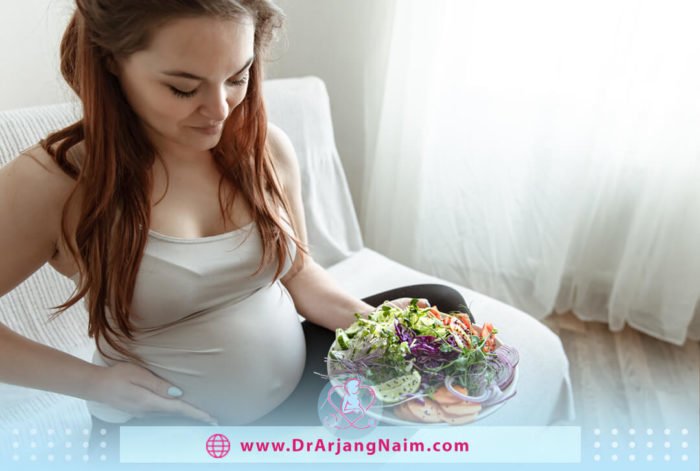
It is essential to follow a healthy and balanced diet with plenty of fresh fruits and vegetables to reduce the risk of cholestasis and other problems during pregnancy. Organic products are less affected by pesticides and other toxins. Apples, strawberries, and grapes often contain higher amounts of unwanted chemicals, while avocados, sweet corn, and pineapples top the clean list.
If canned food is used, make sure it is kept in its own water and has no added sugar. Choose approved organic meats and avoid fried fish and raw seafood. Dried beans and legumes such as lentils and peas are good sources of protein. Increase intake of whole foods such as whole-wheat bread. Avoid the following:
- Sugars and highly refined foods, such as white bread and corn syrup
- Soy products
- Processed meats
- Full-fat dairy produce
Drink 8 to 12 glasses of water a day and avoid alcoholic beverages and carbonated beverages such as cola. Drinking alcohol does not cause cholestasis during pregnancy, but alcohol consumption should be avoided during pregnancy, as it can lead to a number of complications, including other types of liver disease. It is important to follow the doctor’s instructions for treatment and diet, but diet is not a substitute for medication prescribed by the doctor.
Prognosis
Pregnancy cholestasis resolves as soon as the baby is born. After delivery, the surface of bile returns to normal. Most women with this disorder do not have liver problems unless they become pregnant again. Women who develop cholestasis during one pregnancy are more likely to develop it in later pregnancies.
The bottom line
About 1 to 2 percent of pregnant women develop cholestasis. Pregnancy cholestasis is a condition in which bile does not flow normally into the bile ducts, and bile salts accumulate in the skin, which can cause itching.
This condition is caused by the effects of pregnancy hormones on gallbladder function and reduced or stopped bile flow. The gallbladder contains bile that is produced in the liver and is essential for the digestion of fats in the body. If bile flow stops or slows down, bile acids are released into the bloodstream.
In multiple pregnancies, women with a history of liver damage as well as women with a family history of gestational cholestasis are more likely to develop the disease. Itching of the hands and feet, darkening of the urine, tiredness, and anorexia are some of the symptoms of cholestasis in pregnancy. But most affected women only notice the sign of itching.
Therefore, pruritus in pregnant women should be taken seriously, as it may be the first sign of cholestasis, which is dangerous and can cause serious complications if diagnosed late. Pregnancy cholestasis can transmit severe discomfort to a person, and there is a time to worry when the pruritus is passed on to the baby.
Arjang Naim, MD, makes regular appointments with pregnant mothers to check on the condition of the mother and fetus. During these examinations and taking a history from the mother with timely diagnoses, it will eliminate it with proper treatment if there is a possible problem.
Additional questions
1. Is cholestasis considered high risk pregnancy?
Yes. Pregnancy cholestasis is associated with an increased risk of stillbirth and is the only way to reduce this risk of preterm delivery. It usually does not pose a serious risk to the mother’s health in the long run, but it can have serious side effects for the baby.
2. How do you know if you have pregnancy cholestasis?
Severe itching is the main symptom of cholestasis in pregnancy. There is no rash. Most women experience itching on the palms or soles of the feet, but some women experience itching everywhere. Itching often gets worse at night.
3. Does cholestasis go away after delivery?
Cholestasis begins in early pregnancy. But it is more common in the second and third trimesters. It often disappears within a few days after delivery.
4. How do you treat cholestasis naturally during pregnancy?
Home remedies may not provide much relief from the itching caused by cholestasis of pregnancy, but they can be helpful, including:
- Cool baths, which may make the itching feel less intense for some women
- Oatmeal baths, creams or lotions, which may soothe the skin
- Icing a particularly itchy patch of skin, which may temporarily reduce the itch
5. Can drinking water help with cholestasis?
Yes, drinking plenty of water helps flush toxins out of the body and helps the body’s systems work more efficiently.
References:
https://www.cedars-sinai.org/health-library/diseases-and-conditions/c/cholestasis-of-pregnancy.html
https://my.clevelandclinic.org/health/diseases/17901-cholestasis-of-pregnancy
https://www.medicalnewstoday.com/articles/173503#_noHeaderPrefixedContent
https://www.healthline.com/health/cholestasis
